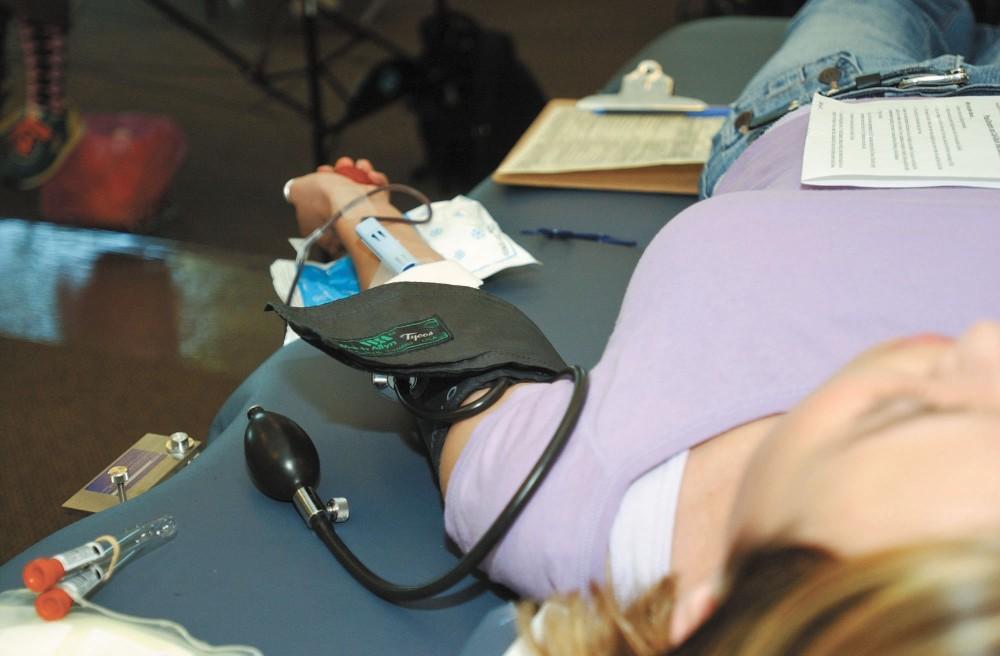Michigan Blood to host on-campus blood drive

GVL Archive GVSU hosts frequent blood drives throughout the semester
Sep 14, 2015
The students of Grand Valley State University will have the opportunity to save countless lives. GVSU is inviting the Michigan Blood Drive Bus to its campus from 10 a.m. to 6 p.m on Sept. 14.
Michigan Blood is an independent, nonprofit organization which collects blood in order to save lives. According to Michigan Blood’s website, the organization provides blood to more than 40 hospitals throughout Michigan. Therefore, each student donor is contributing significantly to the life saving efforts of Michigan Blood.
GVSU has a tradition of hosting many blood drives on its campus, working with both Michigan Blood and American Red Cross. These organizations are both independent and serve the purpose of helping to save lives, but their involvement at GVSU differs slightly.
Michigan Blood sets up its “blood bus” on campus four days a month, located in either the Kleiner Commons or the Kirkhof Center parking lot, and the American Red Cross hosts large-scale blood drives on campus once a month.
“GVSU hosts each of these organizations in order to support their efforts and has done so for many years,” said Melissa Baker-Boosamra, coordinator of the Community Service Learning Center. “With the convenient location on GVSU’s campus, a large section of the student population tends to make its way out to help make a difference.”
As stated by Michigan Blood’s rules, a person is eligible to donate if they are a healthy person of 17 years of age, or 16 with the consent of a parent or guardian, and weigh 110 pounds or more. Also, there must be at least 56 days separating each instance of a person donating blood. These restrictions are in place to ensure the complete safety of the donors.
Each donor will receive a snack to help them replenish their bodies after donating as well.
“Students will also receive the feeling of knowing that their donation can literally save a person’s life,” Baker-Boosamra said.
Anyone who plans on donating should get ample amounts of rest, take in extra fluids, eat an iron-rich meal and avoid alcohol before donating. This helps to make the donation process simple and worry-free. After donating, two important steps to take are to avoid strenuous exercise until after a full meal and drink plenty of fluids in order to replace the liquids the body lost.

























